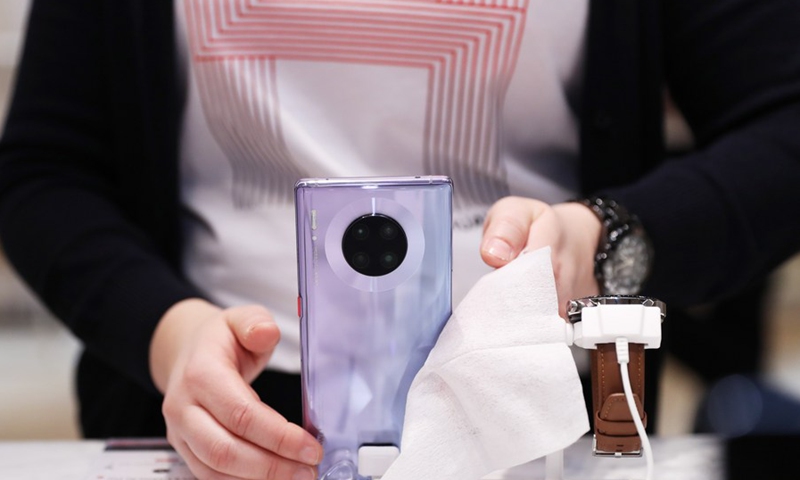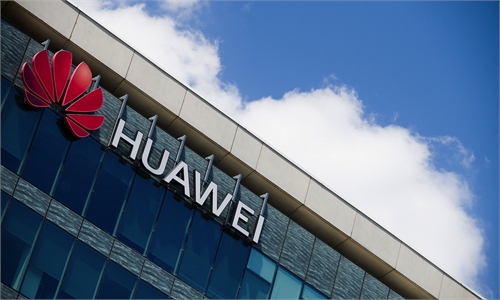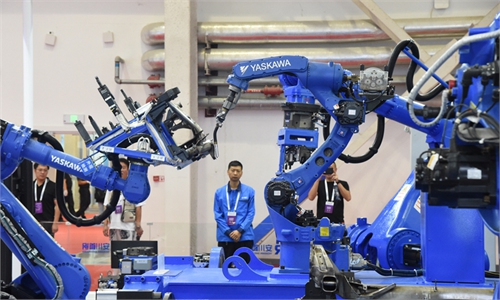
A worker prepares for the opening of Huawei's flagship store in Paris, France, March 5, 2020. (Xinhua/Gao Jing)
Huawei's new smartphone Mate 40, which uses the company's most advanced 5-nanometer Kirin chip, will reportedly be unveiled in mid-October. However, some observers wonder if the Mate 40 will be the first and last that's equipped with the 5-nm chip, due to the US crackdown.
As high-end chip production involves the international industry chain and intercompany cooperation, Huawei still has a good chance to produce the newest chips, even though many suppliers including Taiwan Semiconductor Manufacturing Co (TSMC) and Qualcomm said that they would not be able to supply chips to Huawei under the US ban after September 15, industry analysts said.
"Furthermore, the long-term interests of these companies are still up in the air under the US ban as Washington hasn't offered a full solution to address this issue," Liu Dingding, an independent IT analyst in Beijing, told the Global Times on Sunday.
Citing a prominent internet IT influencer, many media outlets reported on Saturday that Huawei stores are preparing for the launch of the Mate 40 cellphones, which is likely to occur in mid-October. Huawei recently announced that the Mate 40 will come soon.
Since the US government pursued a crackdown on Huawei in recent years, Washington's grip on the Chinese telecom solutions provider has been continuously tightening.
The latest move was the so-called "Huawei ban" starting on September 15 - a date that ended a 120-day grace period, which required the world's chipmakers to stop supplying Huawei no later than September 15.
Despite the US crackdown on Huawei's cellphones, which account for a big portion of the company's Consumer Business Group (and more than 50 percent of the company's global business), the company's chip suppliers for other sectors, including PCs, don't seem to have experienced a major impact.
US chipmaker AMD recently announced that it gained permission to keeping supplying Huawei, and the "Huawei ban" is unlikely to have a major impact on AMD, media reported on Saturday.
The AMD announcement shows that despite US President Trump's willingness to crack down on Huawei, it's hard for Washington to fully suppress Huawei as the US has to strike a balance between cracking down on Huawei and its own enterprises' long-term interests, Liu said.
Despite the US ban, Huawei reportedly hired a charter flight to ship 120 million chips from TSMC before the US ban took effect on September 15, which is likely to guarantee half a year's Mate 40 production.
"There might be a turning point for Huawei's Kirin 9000 chips' fate during next six months, and the Kirin chip is 90 percent likely to continue after this period," Liu said.



